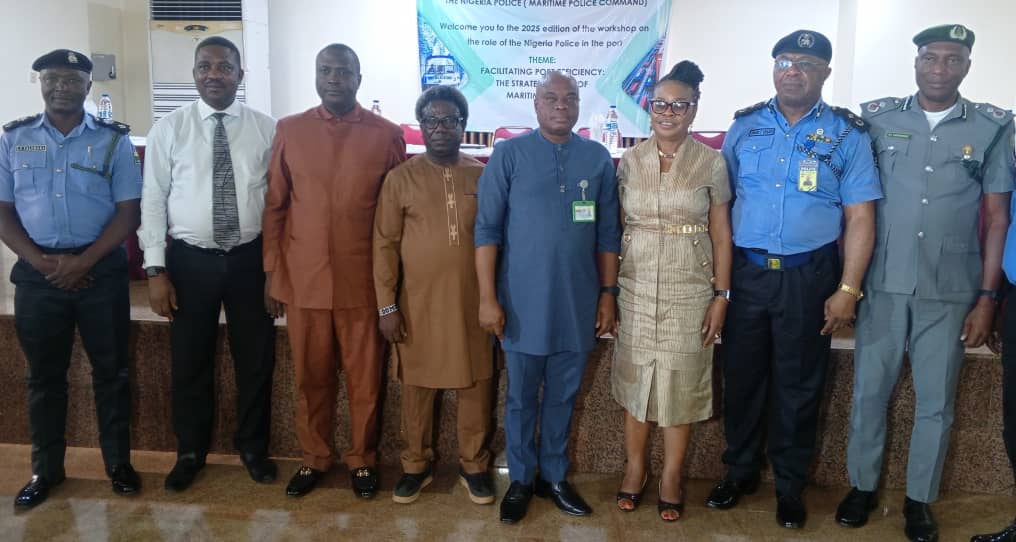The Nigerian Shippers’ Council (NSC) has raised fresh concerns over persistent police interference in cargo clearance at the nation’s ports, warning that such practices continue to worsen delays and inflate costs for consignees.
The NSC raised the concerns on Wednesday during a training session for Maritime Police officers in Apapa, Lagos, where the Council sought to clarify the lawful limits of police involvement in port operations.
Speaking through the Director of Regulatory Services, Margaret Ogbonnah, the Executive Secretary of the Council, Barrister Pius Akutah, said Nigerian ports remain among the slowest in the world for container clearance, with cargoes spending an average of 21 days compared with six hours in Singapore and seven days in Lomé.
He attributed much of the delay to human interference, citing repeated reports of unauthorised detention orders on duly cleared cargoes and intimidation of port personnel, often under the guise of “intelligence reports”.
Akutah said investigations had confirmed that these disruptions were frequently carried out by police units acting without the knowledge of the Maritime Police Command.
He noted that this prompted direct engagement with the Inspector General of Police, leading to a 2018 directive from the Assistant Inspector General of Police, Maritime Command, instructing stakeholders to disregard any police correspondence not signed by the AIG or his authorised officers. Despite this, he said, some of the infractions persist.
He stressed that such interference increases demurrage and storage charges for consignees and tarnishes Nigeria’s business reputation.
He said as the Port Economic Regulator, the Council is pushing for reforms to reduce cargo dwell time, improve efficiency and bring procedures closer to international standards.
The training, he added, was part of a broader effort agreed with the Inspector General to build the capacity of maritime police officers and curb abuses that frustrate trade flows.
Representing AIG Maritime Police Chinedu Oko, Deputy Commissioner Chuks Obasi acknowledged both the strategic role of the police in safeguarding maritime commerce and the operational challenges facing the command, including overlapping agency functions, inadequate logistics and corruption.
He said the Maritime Police Command is aligning with ongoing reforms championed by the Shippers’ Council and the Ministry of Marine and Blue Economy, focusing on digital monitoring, coordinated enforcement and better inter-agency cooperation.
The Council reiterated that achieving a transparent, predictable and efficient port environment hinges on eliminating undue interference in cargo clearance and ensuring that all actors, including law enforcement, adhere strictly to established procedures.
